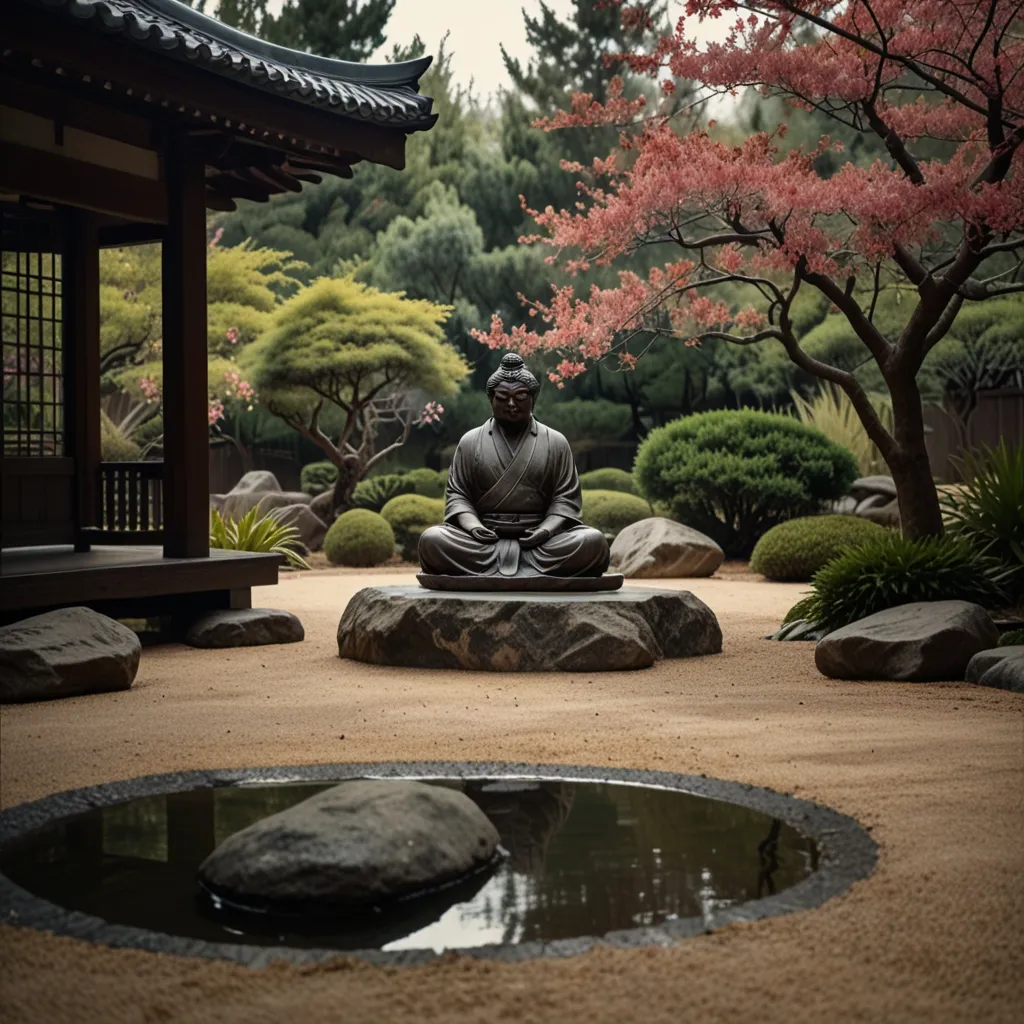Zen Buddhism is a captivating branch of Buddhism highlighting meditation and personal experience over heavy scripts and doctrines. The term “Zen” comes from the Chinese word “Ch’an,” meaning “meditation.” While it originally sprouted in India, Zen truly took form in China before making its way to Japan in the thirteenth century, where it found a particular fondness among the samurai class for its focus on discipline and self-reliance.
At the heart of Zen Buddhism lies the belief that enlightenment isn’t something you chase after with external aids; it’s an internal realization that you’re already enlightened. This awakening can happen gradually or suddenly, depending on which Zen school you follow. The Sōtō school leans towards a slow, steady journey to enlightenment, while the Rinzai school is all about those sudden “aha” moments. Still, both schools agree that enlightenment comes from one’s own efforts, not from just reading scriptures or praying to deities.
Meditation, or Zazen, is the cornerstone of Zen practice. This type of sitting meditation helps you clear your mind and zero in on the present. Zen stands apart from other Buddhism branches because it doesn’t rely much on rituals or scriptures. Instead, it emphasizes direct, personal experiences and learning that happens directly between a master and disciple. This approach is well captured in the famous Zen sayings attributed to Bodhidharma, focusing on a special transmission beyond scriptures and direct pointing at one’s mind.
Zen Buddhism is also well-known for its unique aesthetic that values simplicity and nature. Concepts like wabi and sabi celebrate the beauty of imperfection and the natural aging process. In Zen art, for instance, a worn, irregular jar might be seen as more beautiful than a perfectly made one because it prompts us to reflect on life’s essence.
The impact of Zen on Japanese culture runs deep. It has shaped not only spiritual practices but also influenced art, literature, and philosophy. Take ink monochrome painting, for example. This style, often depicting bamboo, plum flowers, and birds, is closely tied to Zen. These paintings are usually made in a quick, expressive manner to reflect the artist’s spiritual views and inner thoughts.
Zen’s push towards simplicity and naturalness also spills over into daily life. Practitioners are encouraged to integrate their spiritual insights from meditation into their everyday actions. This continuous flow between meditative state and daily life is symbolized by a circle, representing wholeness and perfection.
In a nutshell, Zen Buddhism is a distinctive and influential spiritual path that prioritizes personal experience, meditation, and blending spiritual insights into daily living. Its simple yet profound aesthetic has left an enduring mark on Japanese culture and continues to inspire people globally.






